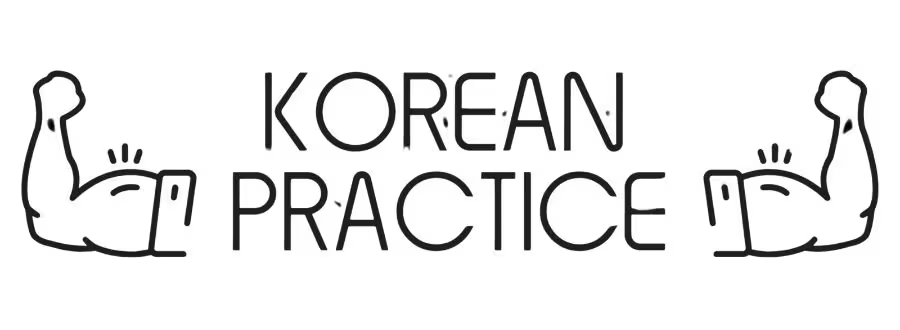Suh ChangWhoon
Written by 서 창훈, a certified Korean teacher with 14+ years of experience in Japan. He previously worked as a government officer, cybersecurity consultant, and English interpreter. Today, he teaches Korean in real classrooms without complex grammar explanations — instead, he trains students’ brains to speak naturally. His unique method is now the foundation of all his Korean courses.
Table of Contents
🔹 Introduction
Have you ever wanted to describe a stomachache in Korean? Or perhaps you’ve heard someone say “배가 아프다” (bae-ga a-peu-da) when they seemed perfectly healthy but were looking at someone else’s success?
This common Korean idiom is one of those fascinating expressions that goes beyond literal translation.
In this comprehensive guide to 배가 아프다 meaning, you’ll discover:
- The two distinct meanings of 배가 아프다 (physical pain vs. jealousy) in Korean language
- How to pronounce and use 아프다 (to hurt/to be sick) correctly in different contexts
- Real-life example sentences with the Korean word for stomach (배) broken down step-by-step
- Effective memorization techniques that actually work for mastering Korean idioms
Let’s dive into this fascinating Korean expression that demonstrates how the Korean language often uses physical sensations to express emotions!
🧾 What Does 배가 아프다 Mean? (Dual Meanings)
| Korean Expression | Literal Meaning | Meaning #1 | Meaning #2 |
|---|---|---|---|
| 배가 아프다 | The stomach hurts | To have a stomachache | To feel jealous or envious |
Word Breakdown:
- 배 = stomach
- 가 = subject particle
- 아프다 = to hurt/to ache

🗣️ Pronunciation of 배가 아프다
배가 아프다 is pronounced: [bae-ga a-peu-da]
- 배 (bae) – pronounced like “beh” with a short vowel sound
- 가 (ga) – pronounced softly as “gah”
- 아프다 (a-peu-da) – stress on the first syllable (아)
📖 배가 아프다 Meaning #1: Physical Stomach Pain
Example
Original Korean Sentence
어제 먹은 음식 때문에 배가 아팠어요.
Pronunciation Guide
어제 (eo-je) 먹은 (meo-geun) 음식 (eum-sik) 때문에 (ttae-mun-e) 배가 (bae-ga) 아팠어요 (a-pat-sseo-yo).
Meaning and Context
어제 (yesterday) 먹은 (ate) 음식 (food) 때문에 (because of) 배가 (stomach) 아팠어요 (hurt – past tense)
Grammar
- -었어요: Past tense polite ending
- 때문에: “Because of” — connects cause and effect
English Translation
My stomach hurt because of the food I ate yesterday.
👨🏫 Want to learn Korean step by step — with full sentence breakdowns, context, and natural examples?
Our story-based Korean course teaches you [real language] the way it’s actually used — not just grammar charts or vocabulary lists.
More Examples (Physical Pain):
Example
- 배가 너무 아파서 병원에 갔어요. (My stomach hurt so much that I went to the hospital.)
- 아침부터 배가 아프기 시작했어요. (My stomach started hurting since morning.)
- 배가 아프면 따뜻한 차를 마셔보세요. (If your stomach hurts, try drinking warm tea.)
📖 배가 아프다 Meaning #2: Jealousy or Envy
In Korean, “배가 아프다” is also commonly used as an idiomatic expression for feeling jealous or envious of someone else’s success or good fortune.
Example
Original Korean Sentence
친구가 시험에서 1등 했다고 하니까 배가 아팠어요.
Pronunciation Guide
친구가 (chin-gu-ga) 시험에서 (si-heo-me-seo) 1등 (il-deung) 했다고 (haet-da-go) 하니까 (ha-ni-kka) 배가 (bae-ga) 아팠어요 (a-pat-sseo-yo).
Meaning and Context
친구가 (friend – subject) 시험에서 (in the exam)
1등 (first place) 했다고 (did – quoted speech)
하니까 (when [someone] said that) 배가 (stomach) 아팠어요 (hurt – past tense)
English Translation
When my friend said they got first place on the exam, I felt jealous.
📚 Like this explanation?
Our course helps you [connect vocabulary, grammar, and real-life usage] through stories, breakdowns, and interactive practice.
More Examples (Jealousy):
Example
- 동료가 승진했다는 소식을 듣고 배가 아팠어요. (I felt jealous when I heard that my colleague got promoted.)
- 그녀의 성공을 보고 배가 아픈 사람이 많아요. (Many people feel jealous seeing her success.)
- 솔직히 그의 새 차를 보니 배가 좀 아프네요. (Honestly, seeing his new car makes me a bit jealous.)
🧠 Why Learners Forget Expressions Like 배가 아프다
Even after memorizing, many learners quickly forget multi-meaning phrases like 배가 아프다 meaning. Here’s why:
- They memorize translations without cultural context
- They don’t practice both meanings in different scenarios
- They miss the emotional and cultural nuances of idiomatic usage
- They don’t connect the expressions to real-life situations
✅ How to Remember Both 배가 아프다 Meanings Naturally
Here’s what actually works:
- Learn in context: Understand when Koreans use the physical meaning versus the jealousy meaning
- Create mental images: For the jealousy meaning, imagine the stomach “hurting” from the acid feeling of envy
- Use emotion-based memory: Connect the feeling of jealousy with the phrase
- Practice in varied situations: Create your own examples for both meanings
🎓 Want to Speak Korean Naturally?
Our comprehensive Korean course offers:
✅ Systematic grammar breakdowns
✅ Practice-focused learning
✅ Story-based immersion
✅ Interactive quizzes & homework
✅ Step-by-step progression
Conclusion: Mastering 배가 아프다 meaning
배가 아프다 is a versatile Korean idiom that captures both physical discomfort and the emotional pang of jealousy. Understanding the full 배가 아프다 meaning helps you not only speak Korean more naturally but also better understand Korean communication styles and cultural attitudes around expressing emotions.
Learning expressions like this, where 아프다 meaning extends beyond physical pain, is essential for mastering Korean idioms. By understanding how the stomach (배) in Korean language can represent both physical and emotional states, you’ll gain deeper cultural insights.
Next time you hear this phrase, you’ll be able to discern whether someone is talking about their digestive issues or their feelings about someone else’s good fortune!
배가 아프지 않게 행복하게 지내세요! (Live happily without stomach pain or jealousy!)
Sign up for my newsletter and get
📖 Korean short stories
🎧 Listening practice with audio
❓ Vocabulary and grammar quizzes
🎁 Free courses
📝 Blog updates
– all delivered straight to your inbox!








